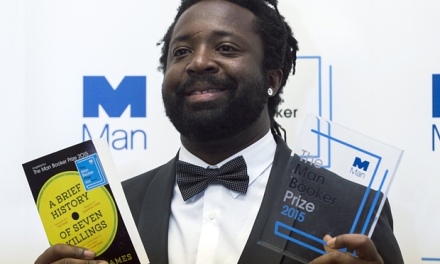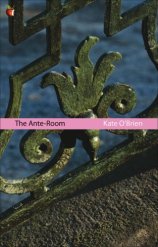
By a strange synchronicity I am reading A Brief History of Seven Killings at the same time as preparing for my unit on Colonial, Postcolonial and Transnational writing. I have not addressed the concept of transnational literature before and am not entirely clear what the term means. I think it is akin to globalisation; an idea that suggests that no text can belong to one national context. We haven’t had the readings for transnational theory yet so I will concentrate on postcolonial theory for the purposes of this blog.
In his book The Wretched of the Earth, Frantz Fanon discusses how when a country is colonised its indigenous culture becomes stultified. This made me wonder about post-colonial literature in terms of the richness and contemporaneity of culture that post-colonial writers have at their fingertips. Is there a vacuum, where culture should be, left by the departing, and generally despised, imperialists? Is the remembered culture of the nation sufficient to provide a context for literature?
Marlon James presents the reader with an almost entirely negative version of post-colonial Jamaican culture in A Brief History of Seven Killings. The novel is peopled by gangsters, by corrupt police and politicians, and by dodgy CIA spooks. Poverty is extreme, guns are numerous and dangerous drugs destroy lives. In spite of “the singer” (Bob Marley) at the centre of the novel, Jamaican culture seems to be rotten to the core; influenced by the worst aspects of their new “imperial master”: America.
Fanon also suggests that a newly-freed nation must produce literature for its own populace. James’s novel, however, was largely ignored in Jamaica, although revered in America (where James now lives and teaches) and in the UK. It was only when it won the Man Booker Prize in 2015 that Jamaican papers and magazines took an interest.
Another idea which is discussed in detail by the authors of In Praise of Creoleness, as well as Ngügï wa Thiong’o in The Language of African Literature is the language to be used by post-colonial writers. The argument is that they should write in the indigenous language of their country rather than in the language of their imperial oppressors. In A Brief History James’s many character-narrators are each given a separate language of expression, including American English. Some character-narratives in patois might be initially inaccessible to most readers requiring them to learn at least some of a new language. In addition, one character-narrator (Josey Wales) ranges through a number of registers in order to communicate, via interior monologue, his views of other characters and events.
An idea, from Edward Said‘s Culture and Imperialism, is that post-colonial literature is in thrall, and not only through the language of expression, to the literature of the colonists: Western literature. This takes, as I interpret it, two forms. Either the new writers try to emulate writing that they consider great, such as Conrad, or they upend form and content to such an extent that the very reaction against Western literature pays it homage.
James’s novel, based on fact and spanning a large number of years, is necessarily mosaic in structure. The multiple narrators help to cement it by reappearing every few chapters and corralling the 75 or so characters. James states that many of these characters represent a type of “Jamaican-ness” that he wants to portray. So the novel, which is certainly not brief, takes the form demanded by the task that James undertakes: writing a complex and deeply thought-out novel about his homeland. He is now preparing a script for HBO.
In spite of James’s day job, I do not imagine that he set out to interrogate theories of post-colonial literature. But, had I the time and space, I would like to analyse his novel in detail, not only as an example of post-colonial literature but also in terms of transnational theory, whatever that is.
Works cited
Bernabé, J. Chamoiseau, P and Confiant, R. In Praise of Creoleness. trans. Taleb-Khyar, M. 1993. France: Gallimard. Print.
Fanon, F. The Wretched of the Earth. trans. Constance Farrington. 1963. UK: Grove Press. Print.
James, M. A Brief History of Seven Killings. 2014 London: Oneworld. Print.
Ngügï, wa Thiong’o. The Language of African Literature. 1986. London: Heinemann Educational. Print.
Said, E.W. Culture and Imperialism. 1993. New York: Vintage Books. Print.

 The Ante-Room, I bought it. And have now read it. On the MA in Irish Writing and Film, we study O’Brien’s
The Ante-Room, I bought it. And have now read it. On the MA in Irish Writing and Film, we study O’Brien’s